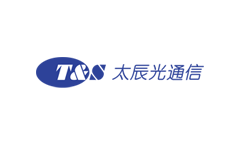What Are the Classifications of Optical Fiber Attenuators?

1. Learn about fiber attenuators
The
intensity of the optical signal received by the optical receiving device
needs to be within a certain range, and the optical power cannot be too
strong or too weak, otherwise, the life of the device will be shortened
or the device will not work normally. The optical fiber attenuator can
act on it to reduce the energy of the optical signal. For optical
passive devices with attenuated input optical power, avoid distortion of
the optical receiver due to super strong input optical power.
The fiber attenuator reduces the optical power through the absorption, reflection, diffusion, scattering, deflection, diffraction, and dispersion of the optical signal. For example, for the absorption of optical signals, set the optical fiber attenuator to a working wavelength range that can absorb light energy. In this range, no light is reflected, unnecessary echo reflection is reduced, and the optical power attenuation effect is achieved in this way.
2. The classification of Optical Fiber Attenuators
The
attenuation range of the fiber optic attenuator is 0 to 65dB. Among
them, the attenuation power of the fixed optical attenuators currently
on the market is between 1 and 30dB. Fixed optical attenuator is a type
of optical fiber attenuator, which fixes the attenuation power at an
attenuation value. Generally used in telecommunications networks,
optical fiber test equipment, local area networks (LAN), and cable
television (CATV) systems. For specific information, you can consult fiber optic accessories suppliers.
There is also a variable optical attenuator whose attenuation level can be adjusted, for example, from 0.5 dB to 20 dB, or even 50 dB. Some variable fiber attenuators have very fine resolutions, such as 0.1dB or even 0.01dB. Mainly used in: optical distribution frame, optical fiber network system, high-speed optical fiber transmission system, cable television (CATV) system, long-distance trunk dense wavelength division multiplexing (DWDM) system, optical add-drop multiplexer (OADM).
Among them, the fixed optical attenuator has a pigtail type, converter type, and converter type. It can be made into FC, SC, ST, LC, MU, and other interface types, and it is very convenient to use in daily wiring. Generally, a single fiber attenuator has two interfaces, male and female, which can be male-female or female-female. The male connector interface is generally used to plug into the receiver of the device or the adapter on the adapter panel, and the female connector interface is used to connect the optical fiber jumper. T&S Optical Communications can provide various types of fixed Yin and Yang optical fiber attenuators. T&S products have stable performance and reliable quality and can meet the customized requirements of ST, SC, FC, MU, LC various connector interface types, and working wavelengths.
Among passive components, fiber optic attenuators are widely used, second only to connectors and couplers. The performance indicators of optical attenuators mainly include attenuation, insertion loss, attenuation accuracy, and return loss. High-performance optical fiber attenuators have low insertion loss, and return loss is usually above 40dB.
- +1 Like
- Add to Favorites
Recommend
- Types of Fiber Optic Attenuators
- Why Fiber Optic Attenuators Are Used in Fiber Optic Cable Transmission Lines?
- What Are the Specific Classification Methods of Fiber Optical Products?
- The Difference Between 100G QSFP28 Fiber Optical Transceiver and 100G CFP4 Fiber Optical Transceiver
- What Are the Common Fiber Optic Attenuators?
- What Are the Functions of the Fiber Optic Attenuators?
- How to Achieve Precise Connection of Optical Fibers with Fiber Connectors?
- How to Choose a Fiber Optical PLC Splitter?
This document is provided by Sekorm Platform for VIP exclusive service. The copyright is owned by Sekorm. Without authorization, any medias, websites or individual are not allowed to reprint. When authorizing the reprint, the link of www.sekorm.com must be indicated.






























































































































































































































































































































































































































































































































































































































































































































































































































































































